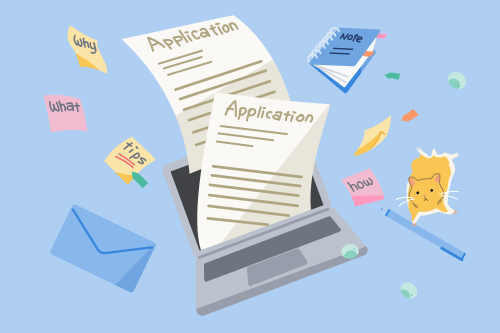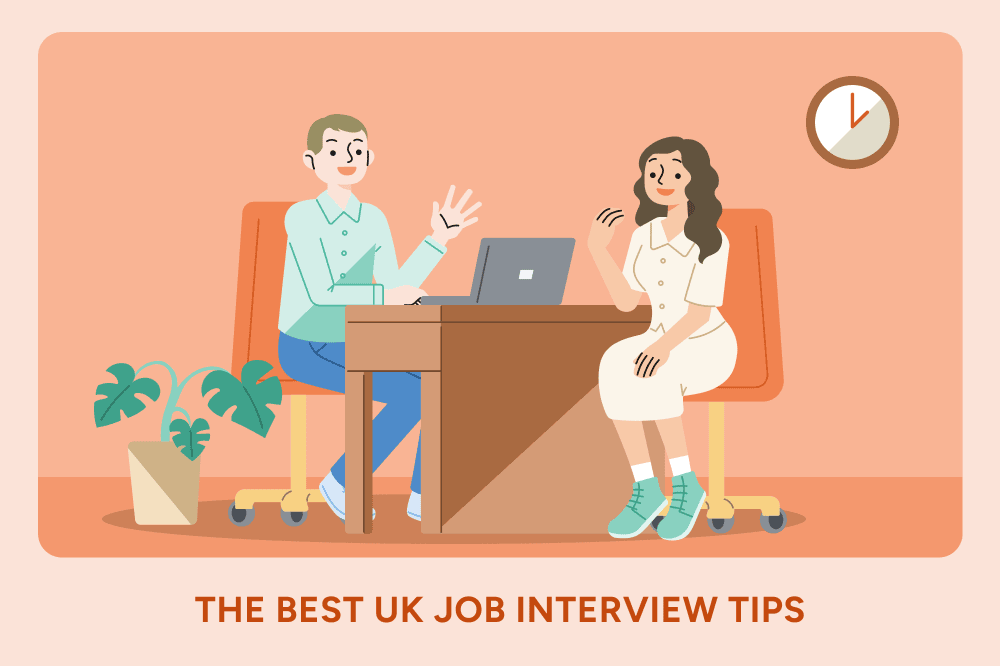If you draw a blank every time you try to think of good questions to ask in a job interview, you’re not alone.
‘Do you have any questions for me?’ can sound scarily open-ended, but a little forward planning will turn this common interview question into a valuable opportunity to impress the employer.
Here, veteran interview coach Margaret Buj shares some of her top questions to ask an employer when the time comes.
And below are 17 great additional questions that will help you showcase your enthusiasm and boost your chances of getting hired.
Spoiler alert: None of them are ‘How much will I be paid?’ You should let the employer be the first to bring up your salary expectations at this stage in the recruitment process.
1. Can you tell me more about the daily responsibilities of this role?
By asking this question, you’ll show employers that you’re keen to get stuck into your new job. Additionally, learning what you’ll be doing all day, every day, can help you decide whether the kind of work is what you’re interested in.
For example, if the interviewer tells you that you’ll be switching between various projects during the working day, you might enjoy that, whereas other people prefer to concentrate on a single task per day.
2. Can you show me examples of the projects I’d be working on?
Asking the interviewer to show you the end results of the company’s projects is a great way to find out what you’ll be expected to produce if you land the job.
Additionally, you can ask how long it took to finish the projects they show you so you have an idea of the rate your new employer expects you to produce at.
Finally, this question shows employers that you’re curious about the work that you’ll be doing and want to prepare yourself to succeed in the role.
3. Is this a new role or would I be taking over from someone who is leaving?
If you’re unsure what kind of role is being offered — a completely new role or a role where you’re replacing someone — ask! By questioning the interviewer about this, you’ll show that you’re already seeing yourself in the role and preparing yourself to meet the company’s needs.
If you’re being interviewed for a completely new role, you can expect:
- more independence
- a less formal onboarding process (or perhaps you’ll take part in creating it)
- more freedom to shape your role
If you’re replacing someone, then it’s likely you’ll:
- have a more formal or established onboarding process
- check in with your manager more often
- follow a similar career trajectory to other people on your team
4. What is your onboarding process like?
Asking about the onboarding process shows potential employers you’re keen to begin working, and that you’re curious about how much support the company provides to its new hires.
You’ll find out what your first weeks of work will look like, what the company expects to see you accomplish while you onboard, and how independent your onboarding experience will be.
5. What have previous holders of this role progressed to?
Asking what previous people in the position have progressed to is a great question because it shows your motivation to progress in your career too. It also gives you insight into what kind of long-term career trajectory you can expect if you succeed in your new position.
6. What are the accomplishments you’d expect from me within 30, 60, and/or 90 days?
By asking what the expectations are for your first, first two, or first three months in your new job, you’re demonstrating to employers that you’re motivated to meet their expectations.
Additionally, their answer will highlight the kind of workload you can expect, helping you decide if the job is right for you.
If you get the job, keep track of your accomplishments on your CV and cover letter by regularly updating them. Using a good online CV maker and cover letter builder is a great way to track your achievements.
7. What is the performance review process like?
When your future employers tells you what their company’s performance review process is like, you’re likely to find out:
- what you need to do to impress your employer
- how often you can expect raises and bonuses
- how often you should aim to exceed expectations to level up your career
And by asking this question, you’ll signal your willingness to integrate yourself into the company’s annual schedule.
8. What’s your favourite aspect of the job?
If you ask what your interviewer’s favourite part of their role is, you’ll find out some of the advantages or positive aspects of the job you’re up for, so you can see if these aspects are something you would also enjoy.
If so, you can continue with your application, but if you’re not impressed by what the interviewer is saying, you can evaluate whether the job is really for you.
And by asking this question, the interviewer will see that you have a good attitude and seek the positive in any situation.
9. Are there any upcoming projects you’re excited about?
This question will quickly give you an insight into what’s coming up on the company’s agenda and whether it’s something you’re interested in.
If you have experience doing similar projects, you can also talk about your experience by linking it to the company’s upcoming projects so you can discuss why your CV skills, prior experience, and achievements will help the company succeed at its projects.
Asking this question also highlights your willingness to immediately get to work if you’re hired, making employers keener to take you on.
10. Is the working environment more collaborative or more independent?
Depending on whether you work better on your own or as part of a team, you can use this question to check that the job you’re applying for is right for you.
If you enjoy working on your own or are an introvert, you might prefer a role where you work independently, whereas you might prefer collaborating with a team if you’re socially inclined or perform your best work if you can bounce ideas off people.
If you don’t get the answer you were hoping for, you could consider whether the job is really for you.
Whatever the answer is, this question tells employers you’re interested in the way the team operates so that you can be a great fit.
Showing interest in and enthusiasm for the role is one of the top interview tips from hiring experts.
11. Can you tell me about the last office event/teambuilding event?
This question is a great way to find out about the company’s culture and whether they’re proactive about organising events to thank the team for their hard work.
If the interviewer struggles to answer the question, it’s likely a red flag that the company doesn’t organise any events at all.
However, if they do answer the question, it’ll give you an insight into the company culture. For example, team lunches may signal that eating, drinking, and getting merry are priorities for the company, whereas activities like archery or go-karting show your colleagues like to get involved in active forms of entertainment.
Which one appeals to you will depend on your personality.
And by asking this question, you’ll show employers that you’re looking forward to getting to know your team in a semi-professional, semi-social setting.
12. Do people usually get lunch individually or as a team?
Similar to the above question, this question helps you work out how well the team gels and hints at the personalities involved on your team.
If most people get their lunches individually, it indicates that your boss or your potential colleagues aren’t proactive in setting up team events, including lunch, or that most people at your new company aren’t extroverted.
However, if team lunches are common, it shows either that the team enjoys spending time in each other’s company or that the firm proactively organises social encounters for the team.
Again, which one you prefer will depend on your personality, so you can decide for yourself whether you’re interested in the role.
And similar to the question above, asking this question shows you’re curious about how the team interacts and whether your personality will mesh.
13. What’s different about this company compared with the other companies you’ve worked at?
The advantage of asking this question is being able to quickly find out what’s unique about a company. For example, maybe it has a perk that’s rare among companies in the same industry or it approaches work in a novel way.
Employers will also be impressed that you’re seeking an extraordinary working environment because it signals that you’re seeking a challenge — in other words, you’re not looking for the same experience as other workers in the industry.
14. How long before I will […] (have a particular responsibility)?
Your interviewer will love that you asked this question because it shows you’re a go-getter who craves more responsibility. You’ll also find out more about the company’s expectations and the kind of timeline for you to meet them.
For example, if you’re applying for a retail role at Selfridge’s, asking how long it’ll take for you to have supervisory responsibilities shows employers you have a lot of ambition.
15. What is the company’s remote work policy?
Because of COVID-19, more people are seeking remote positions, so it makes sense to find out about your company’s policies.
Whether you’d be able to work from home every day or you’d be expected to come into work for a minimum number of days per week, it’s best to clarify how remote work is organised. You may also be expected to come into work every day during the onboarding period.
By asking this question, you’re also alerting employers that you’re ready to get to grips with the practical aspects of the job.
16. What is the thing new hires find most surprising about the job after they start?
This question will really make the interviewer think about what makes their workplace different from others — and hopefully the answer they come up with will be a good surprise!
Asking this question will show the interviewer that you want to be fully prepared for the job so you can immediately get on with your responsibilities without distractions when you start.
17. Are there chances for progression or development in the company?
This interview question will thrill the interviewer because it shows that making progress and professional development are your priorities as you seek a role.
By asking this question, you’ll find out whether promotion opportunities are available, or if not, what chances you’ll have to learn new skills or gain related practical experience.
And as your career progresses, learn how to put different types of promotions on your CV to show employers that you’re capable of advancing and taking on more responsibility.




